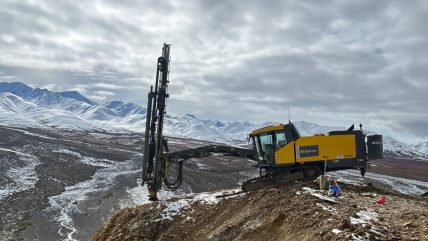
Granite has secured the final construction option for the Polychrome Area Improvements construction manager/general contractor (CM/GC) project in Denali National Park, Alaska, US.
The company has completed the preconstruction services for the development.

Discover B2B Marketing That Performs
Combine business intelligence and editorial excellence to reach engaged professionals across 36 leading media platforms.
Granite Regional Operations VP Derek Betts said: “We are pleased to have effectively delivered preconstruction services and successfully negotiated all the construction phase contracts.
“As a partner with the FHWA [Federal Highway Administration] and NPS [National Park Service], we look forward to building this critical bridge and providing the public with access to the western half of the park that has been cut off by a landslide since 2021.”
Awarded by the FHWA, the option is valued at $112m.
This final construction award brings the total value of all options awarded to $207.79m and will complete the NPS’ planned scope for the project.

US Tariffs are shifting - will you react or anticipate?
Don’t let policy changes catch you off guard. Stay proactive with real-time data and expert analysis.
By GlobalDataThe entire project contract is broken into Option W, Option X, and Option Y.
In July 2023, Granite received Option X and won options to continue CM/GC works in October.
The Polychrome Area Improvements project is located at the Pretty Rocks Landslide, which intersects Denali Park Road at Mile 45.4.
It involves constructing a 475ft-long single-span steel truss bridge spanning the active landslide area.
Techniques to improve ground conditions and support the bridge will be incorporated.
These techniques include rock anchors, soil nails, micropiles, and precast/post-tensioned concrete abutments.
Additionally, the project will use thermosiphons, a passive heat exchange system that prevents permafrost from thawing and causing instability.
Construction began in 2023 with initial mobilisation, the development of a worker camp, and various preparatory works.
The 2024 season’s plans include completing mass earthwork, constructing bridge abutments, installing a temporary launching system, and partially erecting the steel bridge.
The bridge’s erection will continue into next year, with the structure being launched to span the landslide.
For 2026, the project’s focus will shift to setting precast bridge approaches, building a retaining wall, installing thermosiphon condensers, coating the bridge deck, and finally, demobilisation.





